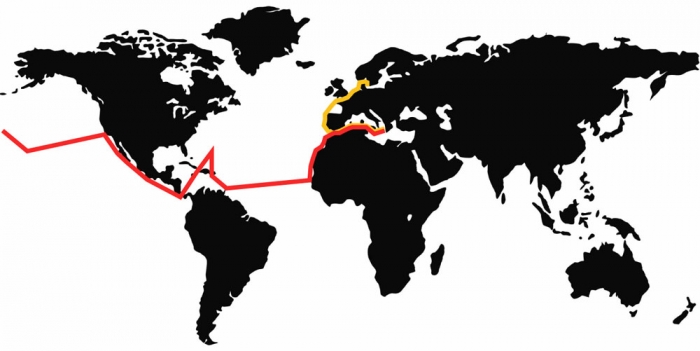The National Aquarium Denmark – Den Blå Planet spotlights plastic pollution
Then National Aquarium Denmark – Den Blå Planet and the environmental organisation, Plastic Change, have joined forces to call attention to the increasing threat from plastic in the marine environment.
There is now enough plastic in the world’s oceans to cover an area the size of Africa. This includes everything from disposable lighters and plastic bags to car tyres and microplastics that are too small to see with the naked eye.
Support the struggle to keep the sea free of plastic
To call attention to the increasing threat from plastic in the marine environment, the National Aquarium Denmark – Den Blå Planet has joined forces with the environmental organisation, Plastic Change.
“We hope our collaboration with Plastic Change will help to spotlight a growing problem in the world’s oceans and make a difference for the marine life we are all dependent on,” says Kai Frydendahl, Vice President, National Aquarium Denmark.
Why is the National Aquarium Denmark joining forces with Plastic Change? (in Danish)
Presentation by Henrik Beha Pedersen and Plastic Change (in Danish)
What would be the best news for Plastic Change? (in Danish)
(The National Aquarium Denmark apologises for the wind noise on the recording.)
Expedition to Bermuda
In 2015, Plastic Change embarked on an expedition to the ‘island of plastic’ near Bermuda. This is not an ordinary island you can walk on, but an enormous collection of plastic debris of varying sizes and depths that has drifted together as a result of the dominant oceanic currents.
“The agreement with the National Aquarium Denmark will benefit the environment. We ensure that a great many visitors and schoolchildren learn about the huge environmental impact of plastic, and this significantly increases the chances that politicians and industry will also take the problem seriously. If we don’t do something now, in ten years, there will be a ton of plastic in the ocean for every three tons of fish,” concludes Henrik Beha Pedersen, environmental biologist and founder of Plastic Change.

